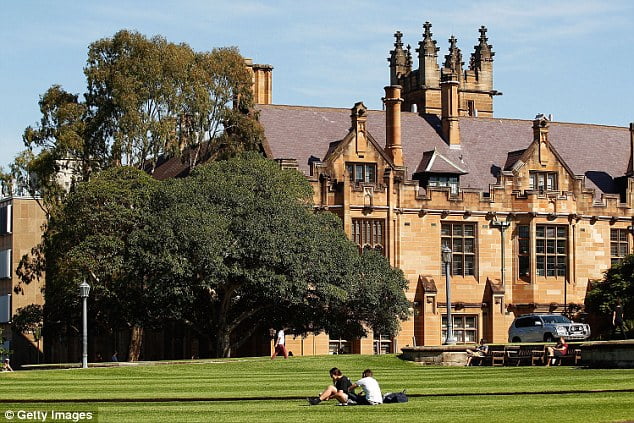
The University of Sydney is under fire for a new scholarship of nearly $30,000 that gives preference to male applicants, with the head of the scholarships office likening it to grants that “discriminate” against students who are not Aboriginal.
The Prof Marsh Edwards AO scholarship, offered for the first time this year, is available to students enrolled in the postgraduate doctor of veterinary medicine degree at the University of Sydney. The successful applicant will receive $6,750 a year for four years.
The release states that “preference will be given to male applicants who are from rural and regional areas with an interest in large animal practice and intended to work in rural veterinary science”.
News of the scholarship was circulated among veterinary students on Thursday. A female student, in her second year of her doctor of veterinary medicine degree, told Guardian Australia she was “very surprised” to see that preference would be given to male students and thought that it was an administrative error.
The student said that though there were more women in the veterinary medicine program than men, there were more structural barriers to their advancing in the profession. There was also a gender pay gap, compounded by fewer women in senior positions.
She said the university was “misguided” to offer the scholarship – which, she was surprised to learn, was not the first to be offered only to male veterinary students.
“It’s poorly thought out, their reasoning. They’re not addressing gender inequality in an intelligent way, and I think the university should be held to a higher standard. … It seems they care more about money than they do about my being a woman and getting equal opportunities.”
Questioned over the preferential status granted to male applicants, Danny Sun, the head of the university’s scholarships office, has likened it to grants that “technically … discriminate [against]” students who are not of Aboriginal background. He said it was permissible given the university’s charitable status.
Sun made the comparison in a conversation with one of the two women’s officers on the university’s student representative council, Katie Thorburn, and on at least one other occasion.
Sun’s remarks were put to the University of Sydney, but a spokeswoman did not address them in a statement. It said the preference for male applicants had been requested by the donor, and the scholarship was open to all veterinary science students, who were “overwhelmingly female”.
“Of this year’s graduate entry for the doctor of veterinary medicine students over 90% of the intake is expected to be female. This is a trend seen over the past five years along with an increasing trend away from rural practice,’ the statement read.
“The inclusion of males as one of a number of preferences by the donor is to address the current underrepresentation of males in the student cohort.
“As such it is consistent with the university’s support of actions to address and encourage diversity and [address]underrepresentation in certain disciplines or professions.”
The university offered a number of scholarships aimed at increasing the participation of women in subjects where they were underrepresented, and “was satisfied it is complying with the law”.
Thorburn’s fellow women’s officer, Imogen Grant, said the comparison with scholarships for Aboriginal Australians was a “completely inappropriate”, and that there was no excuse for the university to be “complacent about discrimination”.
She said while the scholarship could, in theory, be granted to a woman who met the other criteria, funding was a factor for graduate students deciding whether to pursue further study.
[Source:-The Guardian]

